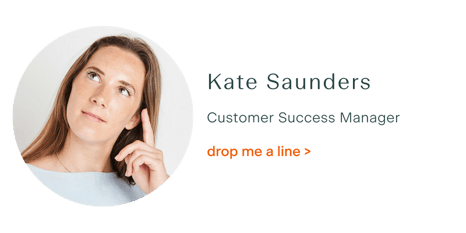
Why embrace emotional selling in B2B campaigns
 Emotional selling is experiencing a wave of popularity as we speak, and B2B businesses in particular are investing heavily in their brands like never before. It’s time to move away from traditional, formal, rigid sales and marketing techniques, and towards being more human in business.
Emotional selling is experiencing a wave of popularity as we speak, and B2B businesses in particular are investing heavily in their brands like never before. It’s time to move away from traditional, formal, rigid sales and marketing techniques, and towards being more human in business.
Why is this? Well, there are four major changes impacting the way we buy and sell products today:
1 ) Knowledge = power. There has been a shift from company to customer. Today, consumers have access to more free information than ever before, giving them power over businesses and sellers.
2 ) Supply > demand. Competition is higher than ever. No matter how niche your product or service, there will most likely be several options on the table for the buyer.
3 ) Instant response expectations. The rise of conversational marketing addresses the need for real-time human interactions and removing barriers between business and customer.
4 ) Closing the trust gap: Consumer trust is at an all time low. Personalised videos and handwritten notes can meet the need for emotional selling and address the empathetic gap that needs filling.
The way companies have been selling and marketing is broken. It's time to get personal. In this blog, we will look at how you can succeed with emotional selling in B2B sales.
What is emotional selling and why does it matter?
Over the past 20 to 30 years, the business world has been controlled by the overwhelming urge to satisfy shareholders with short term growth. As a consequence, care for other stakeholders in business has been pushed aside; from the customer and the employee to wider society.
The resulting lack of honesty and care means that we don’t trust financial institutions, we don’t trust government, we don’t trust the media and advertising, and we don’t trust sales and marketing.
Trust is at the heart of what makes us human. For someone to buy they must trust. It's what enables us to do business with others, delegate work to other teams internally or outsource to other businesses.
For someone to trust, three things must be present: expertise, honesty and caring. Creating trust is at the heart of any emotional selling proposition.
What B2B can learn from B2C
Historically, emotion has been a part of B2C marketing. However, B2B brands are starting to follow in the footsteps of B2C in terms of brand investment and emotional selling. We are waking up to the reality that B2B purchases are human-to-human purchases too, and humans aren’t entirely logical beings.
Viewing B2B purchases in a similar way to a luxury personal B2C purchases will make you a successful seller. Imagine you’re purchasing a Tesla. There are risks involved, it’s a big investment, you may not get your money back, sacrifices may be required in order to afford the purchase, and it makes you highly visible to your peers. All of these aspects make it a highly personal, stressful and emotional sell.
B2B purchases are all of these things, but arguably even more heightened as risks could potentially extend to poor business performance and even the loss of jobs. In order for B2B buyers to take these risks, B2B sellers and marketers need to employ an emotional selling proposition to create excitement and emotional buy in on both a personal and professional level.
The statistics behind the emotional sell
Emotional selling propositions have the power to influence purchase intent and premium price because 31% of B2B buyers attribute personal value to purchases.
Your B2B buyers will be weighing up your solution alongside your competitors and potentially other methods. But intentionally or unintentionally, they won't just be making a logical business-minded decision. As human beings, their own personal interests come into the equation. When there is room for personal reward, emotional selling is going to pip any solely logical and rational options to the post.
In fact, when personal and emotional aspects are present, research shows buyers are 50% more likely to buy. And not only that, but 68% of people are more likely to pay a premium for it!
How can I incorporate emotional selling in B2B sectors?
It's not what you say, it's the way that you say it. Remove the formal funk that corporates have taught us, get rid of the filter and speak with honesty and authenticity. Be less scripted and robotic if you want to build relationships with customers. Be authentic in your emotional sell and above all, be human.
Emerging communication channels like conversational marketing are also putting customers at the centre of the business world. Allow people to interact with you in the way they choose to communicate with friends and family. In contrast, traditional channels of communication, such as handwritten letters, can create customer delight and inspire an emotive connection.
Combine content and resources demonstrating your expertise with a great story to build trust, and you will convince both the head and the heart of the buyer. Emotional selling in B2B sectors has the potential to change the way prospects think, inspire new behaviours and transcend the rational buyer’s journey. Offer another level of connection, an extension of the business, a part of you as a human being.
